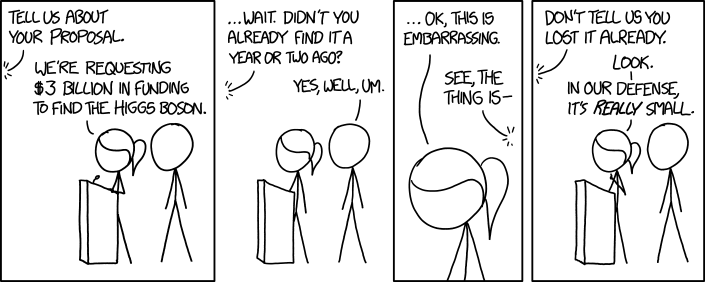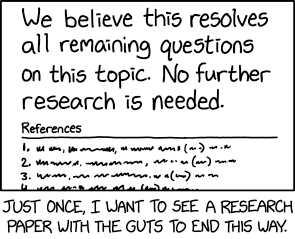3 January 2022 by Keiland Cooper
Some advice about grants like the NSF GRFP

I was lucky enough to win the NSF GRFP award. I found online resources to be tremendously helpful. One day I’ll write a more thorough document about the GRFP. But honestly, many have already done a such a wonderful job that mine would only be mediocre in comparison. So I’ll point to some of the best resources and tips I know of, and then offer just a few bullets of my own.
I’m guessing you already know what the GRFP is, but if not, here is what the NSF says about it:
“The NSF GRFP recognizes and supports outstanding graduate students in NSF-supported STEM disciplines who are pursuing research-based master’s and doctoral degrees at accredited US institutions. The five-year fellowship includes three years of financial support including an annual stipend of $34,000 and a cost of education allowance of $12,000 to the institution.”
If you’re thinking about applying, it’s definitely worth it, if for nothing else the experience of this type of writing and crystalizing your research. That said, it is a lot of work, so hopefully this can help serve as a jumping off point for resources, ideas, and tips I found to be helpful.
Some resources
- For the next few months, this will be your life. Read. Every. Word. Seriously. I’ve heard too many stories of rejected grants because of a new formatting change, or a missed deadline (5pm, what an odd one to pick.) Every year is slightly different, so you can’t always trust outdated advice. So read this. Take notes. You will have worked too hard to miss a minor detail. NSF also puts on workshops overviewing that year’s grant, which can be pretty helpful. Here are some older slides from them.
- Mallory has put together a really comprehensive website overviewing the GRFP. A great way to distill all of the dense writing of the solicitation (but again, not a substitution!). She even has a recommended schedule to keep you on track (though I, uhm, didn’t quite adhere to it as much as I would have liked…)
- One of my favorites and among the most helpful. He has curated a spreadsheet of over 100 successful GRFPs, many which have reviewer comments. Read as many as you can to get a feel for the overall organization and writing styles involved in the grant process.
- Short but sweet, Dave offers some really good tips that can help focus your writing and set your application apart.
- By now you should have an idea about what the GRFP is, how it works, and some examples. But what should still be less clear is the most important part: the reviewers. Darren Lipomi was nice enough to pull back the curtain a bit. I recomend watching his video, or this one from UNM. More content like this comes out each year, so running a quick Google search can offer some useful information.
Award Offers and Honorable Mentions List
- This site offers a comprehensive list of all winners and honorable mentions for the GRFP. At some point you’re going to have written an application, one of the best things you can do is to get as many eyes on it as possible. Look up some folks you may know and reach out to see if they wouldn’t mind having a quick go at yours.

Some brief advice
Your goal is to put an image in the reviewers mind that you have the potential to contribute to the scientific workforce of the country.
Before you write:
Read every word of the solicitation. Yes. Every word. Outline it even
Know the deadline. Seriously.
Read as many grants as you can get your hands on. Start pretending you are a reviewer when you read them
Put yourself in the reviewer’s shoes. Every. Step. Of. The. Way.
Do a mini lit review around your topics of interest. Get a feel for the field you’re applying to
Your personal statement should be a story built on the puzzle pieces of your accomplishments
Say where you’ve been, where you are, and where you are going
I like to plan in powerpoint. Easy to move ideas around
As you write:
Use the reference writers to your advantage, as a component of your story. They are a part of your application. Use them as such.
Be organized. Iterate everything. Back up everything.
Be careful with your first and last sentence of each paragraph, they’re most memorable
Give your reviewers bullet points to write about
Submitting and happily ever after:
Between 2010 and 2020, about ~2,000 Fellowships are awarded yearly
- 2017: ~13,200 Applications - ~15% success rate
- 2018: ~12,400 Applications - ~16% success rate
- 2019: ~12,200 Applications - ~16% success rate
- 2020: ~12,900 Applications - ~16% success rate
Remember that no matter how hard you work, you can only alter the probability you’ll get the grant. But at the end of the day, it is mostly a stochastic process. Grab 100 pennies, toss them on the ground, and then grab three of the most shiny and then 13 others. This is probably as good of a process for picking winners as any. I read applications I thought were better than mine that didn’t win. Doesn’t mean that that are any less of a scientist.
Reviewer woes - remember the set you get is mostly stochastic and who knows what crazy things they may say. Don’t fret if you get a bad review. I had some really helpful, thoughtful comments, and I’ve had the inverse. So it goes.
Once you submit, forget about the grant. You did some good work out there. Treat yourself and then get back to work on your next project. It’s up to the Science Gods now :)
Things to keep in mind:
Applications by applicant stage are considered separately: UG -> then 1st year -> then 2nd year
The GRFP is probably contributing to scientific inequity. For more on these arguments, I recommend reading this or this or this
Afterwords:
Pay it forward. Science is collaborative. You had help to get where you are and the next generation that will solve the problems we face will need it to. Read their essays. Write a blog. Help out at disadvantaged schools. Anything you can do, you should try to. If you didn’t win, apply again, either to the GRFP or some other grant. Plenty of the brightest scientists didn’t have one.
Good luck!

FAQ
I have a quick question that wasn’t discussed here
I can try my best to answer it if you head here
Will you read my application?
Probably! Remember my background is in neuroscience, cognitive science, and AI, but I’m excited to see the breath of science that’s going on. Head here
Can I see a copy of your application?
Yes! I’ll upload it here soon, but for now, head here